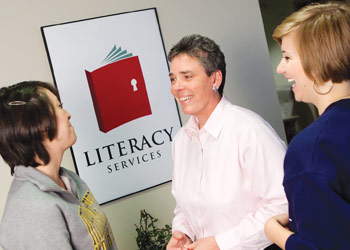Service learners are asked to step foot into the neighborhood surrounding Marquette, and many times it is their first experience navigating the Milwaukee County Transit System and traveling outside campus. Students' eyes are opened to the social injustices occurring right outside of the immediate campus. They are able to communicate and oftentimes even form friendships with people who may be quite different from them, and see individual examples of the social problems discussed in lectures and textbooks. They are able to learn about others, the community and, often most importantly, themselves.
The agencies receive weekly assistance from dedicated Marquette students. They are able to feel a connection to the university, and the clients at the agencies value the presence and help of service learners. We often hear from our site contacts, "Our agency would be unable to exist without the help of volunteers like Marquette Service Learners." For additional research on the outcomes of service learning, check out a bibliography of resources.
Professors are able to see more of the "light bulb" moment in their students. Most students leave service learning courses with strong content mastery; this means that during class discussions, exams and assignments, they were able to connect the theories explained and the things witnessed at their agencies. In addition to witnessing unparalleled content knowledge in their students, professors have many opportunities for publishing journal articles, and even books, about their use of the service learning pedagogy.
